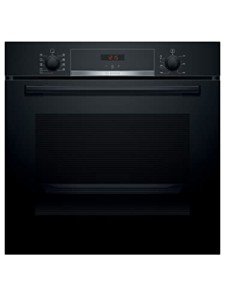The Ultimate Guide to Built-In Electric Ovens: Features, Benefits, and Buying Tips
Introduction
As culinary practices evolve and kitchen designs end up being more advanced, built-in electric ovens use a mix of practicality and sophistication for modern-day homes. These ovens are created to supply a seamless integration into kitchen cabinets, improving both functionality and looks. In this short article, we will check out the numerous functions and advantages of built-in electric ovens, together with important factors to consider for possible purchasers.
Comprehending Built-In Electric Ovens
Built-in electric ovens are set up straight into your kitchen cabinets, freeing up counter area and providing a structured look to the cooking area. similar internet page can be found in different sizes, designs, and performances to fit various cooking requirements and kitchen layouts.
Types of Built-In Electric Ovens
There are a number of kinds of built-in electric ovens, categorized based upon their functionality and style:
- Single Ovens: A common option for families, offering sufficient cooking space.
- Double Ovens: Ideal for those who cook in bigger quantities, enabling synchronised cooking at different temperature levels.
- Wall Ovens: Installed at eye-level, making them more available than traditional ovens.
- Mix Ovens: These systems combine routine baking with convection or microwave functions, including versatility to cooking options.
| Type | Description | Ideal For |
|---|---|---|
| Single Oven | One cooking cavity | Little households or people |
| Double Oven | 2 separate cooking cavities | Large households or devoted cooks |
| Wall Oven | Mounted at eye-level | Ease of access and style |
| Mix Oven | Offers several cooking approaches | Flexibility in cooking |
Secret Features of Built-In Electric Ovens
Built-in electric ovens come loaded with features developed to improve the cooking experience. Here are some common characteristics to consider:
- Convection Cooking: Many modern-day electric ovens included a convection option, which circulates hot air for even cooking and faster baking.
- Smart Technology: Integration with wise home systems enables users to manage their oven from another location through smartphones.
- Self-Cleaning Options: Self-cleaning modes burn off food residues, making it easy to preserve health without extensive scrubbing.
- Variable Temperature Controls: Adjustable temperature level settings for exact cooking, suitable for baking delicate pastries or roasting meats.
- Interior Lighting: Bright lighting inside the oven aids in keeping track of food without unlocking.
- Resilient Materials: High-quality products, such as stainless-steel or ceramic interiors, improve durability and ease of cleansing.
Advantages of Built-In Electric Ovens
- Area Efficiency: By incorporating the oven into cabinets, property owners can optimize kitchen space for other appliances and storage.
- Visual Appeal: Built-in designs contribute to a stylish kitchen design, providing a clean, minimalist look.
- Increased Accessibility: Wall-mounted ovens eliminate the need for bending down, providing simpler access for users of all ages.
- Adaptability: With different settings and functions, electric ovens accommodate numerous cooking designs and preferences.
- Accuracy Cooking: Electric ovens tend to use more accurate temperature control compared to gas designs, guaranteeing consistent cooking results.
Comparison of Built-In Electric Ovens
Selecting the best built-in electric oven can be frustrating due to the range of choices readily available. Here's a quick comparison table of some popular brands:
| Brand | Design | Capability | Unique Features | Cost Range |
|---|---|---|---|---|
| Whirlpool | WOS51EC0HS | 5.0 cu feet | Smart innovation, self-cleaning | ₤ 1,200 - ₤ 1,500 |
| Samsung | NV51K6750CG | 5.8 cu ft | Dual convection, Wi-Fi connectivity | ₤ 1,400 - ₤ 2,000 |
| Bosch | HBL8453UC | 4.6 cu feet | European design, multiple cooking modes | ₤ 1,500 - ₤ 2,500 |
| KitchenAid | KBSN608ESS | 6.4 cu ft | Sleek style, temperature probe | ₤ 1,800 - ₤ 2,400 |
| LG | LWS3063ST | 6.3 cu ft | SmartThinQ innovation, convection | ₤ 1,400 - ₤ 2,100 |
Often Asked Questions (FAQs)
1. What is the average life expectancy of a built-in electric oven?
Built-in electric ovens usually have a life-span of around 13 to 15 years, depending on use and upkeep.
2. How do I preserve my built-in electric oven?
Regular cleansing, preventing harsh chemicals, and making sure proper ventilation during cooking will help keep your oven's performance.
3. Are built-in electric ovens energy effective?
Yes, most built-in electric ovens are designed to be energy-efficient, with features that reduce energy usage while maximizing cooking performance.
4. Can I install a built-in electric oven myself?
It is suggested to employ a professional plumbing technician or electrical contractor for setup, as proper electrical connections are important for safety.
5. What are the common sizes for built-in electric ovens?
Requirement sizes normally range from 24 inches to 30 inches broad, though customized options might be readily available.
Built-in electric ovens have actually ended up being a popular choice for house owners aiming to enhance their kitchen's functionality and design. With a variety of alternatives, features, and technology available, investing in a built-in electric oven can raise the cooking experience while including worth to your home. When selecting the right design, consider your cooking needs, overall kitchen style, and budget to guarantee that your choice works as a seamless and elegant addition to your culinary area.

